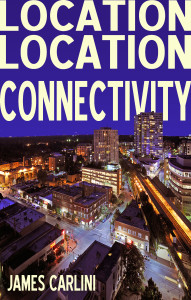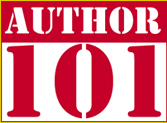A pragmatic, visionary perspective —–
Infrastructure is critical to a nation’s success in the global marketplace today. As the Platform for Commerce, it needs to be resilient and reliable because all businesses are built upon it.
WHAT IS HAPPENING IN ASIA?
Right now, countries in Asia are forming a new consortium called the AIIB. AIIB stands for Asian Infrastructure Investment Bank and it is headed up by China, but it is also being funded by several European countries including Great Britain, Germany, France and Italy. So far, the United States has taken a pass on it and we can debate if that is a good strategic move or not.
There are many Asian member countries already signed up as members. According to Wikipedia: China, India, Thailand, Malaysia, Singapore, the Philippines, Pakistan, Bangladesh, Brunei, Cambodia, Kazakhstan, Kuwait, Laos, Myanmar, Mongolia, Nepal, Oman, Qatar, Sri Lanka, Uzbekistan, and Vietnam. This does not include the list of European countries like Luxembourg, Spain, and others along with the “Big 4” of Europe: Great Britain, Germany, France, and Italy. Other interesting members include Saudi Arabia, Jordan, Kuwait, Oman, and Qatar.
The United States is reluctant to join because they are afraid the banking regulations will not be as high a standard as other established institutions like the IMF (International Monetary Fund) but you have to think, if all these other countries are joining in, we should at least get in the mix just to monitor what is going on.
You would think this is a good thing and we should be in on this. We aren’t. We need to understand the ramifications of this type of consortium and where it is really headed. We need to understand what priorities other countries have for their new infrastructure projects and look internally into ours to see if we are ahead of others, about the same, or lagging behind in launching and finishing critical infrastructure projects.
This is where you can leapfrog other countries when you build out infrastructure that they currently do not have. South Korea is a good example. They were considered a third world country 30-35 years ago. Today, they are very competitive and part of the reason is that their infrastructure is first-class.
SO WHAT DOES THIS MEAN?
A friend of mine who has been a long-time executive in several multi-national companies looked at it from a different angle and made this observation:
The AIIB is part of a 25 year strategy by China that culminates in the Yuan replacing the dollar as the primary global currency. The Chinese are brilliant.
This formation of AIIB is a prelude to the IMF and Global Bank becoming second rate capital sources for developing countries.
By 2020, the US greenback will join the same level of stature as the Euro and English Pound.
If he is correct, we should NOT be taking a wait-and-see attitude. We should be taking action. If the AIIB replaces the IMF as the primary global lender in years to come, that changes the total global landscape as to who has the key financial power. The dollar isn’t the “go-to currency” when it comes to international projects and related trade.
We also need to invest in our infrastructure and not lay back and say,”ours is already built”. Many new technologies and approaches are critical in every layer of the Platform for Commerce. We cannot utilize antiquated structures and concepts if we are to compete in global markets.
This is a critical area to keep aware of. Those who watch “Dancing with the Stars” should be more aware of this new endeavor and be more concerned with the marriage of all these countries in a new financial fund than concerned about the next marriage of a Kardashian.
CARLINI-ISM : “In our infrastructure, we cannot depend on 19th and 20th century solutions to solve 21st century global challenges.”

His visionary book, LOCATION LOCATION CONNECTIVITY is available at AMAZON:
and BARNES & NOBLE online:
http://www.barnesandnoble.com/w/location-location-connectivity-james-carlini/1120585793?ean=9780990646044
He will be speaking at several upcoming conferences across the country later this year including the Windy City Summit (a major conference on Treasury and Cash Management) at Chicago’s Navy Pier on May 20th-22nd.
Follow daily Carlini-isms at www.TWITTER.com/JAMESCARLINI
Copyright 2015 – James Carlini – ALL RIGHTS RESERVED



























 Watch this Video on A Better Way To Fight Harmful Free Radicals
Watch this Video on A Better Way To Fight Harmful Free Radicals
